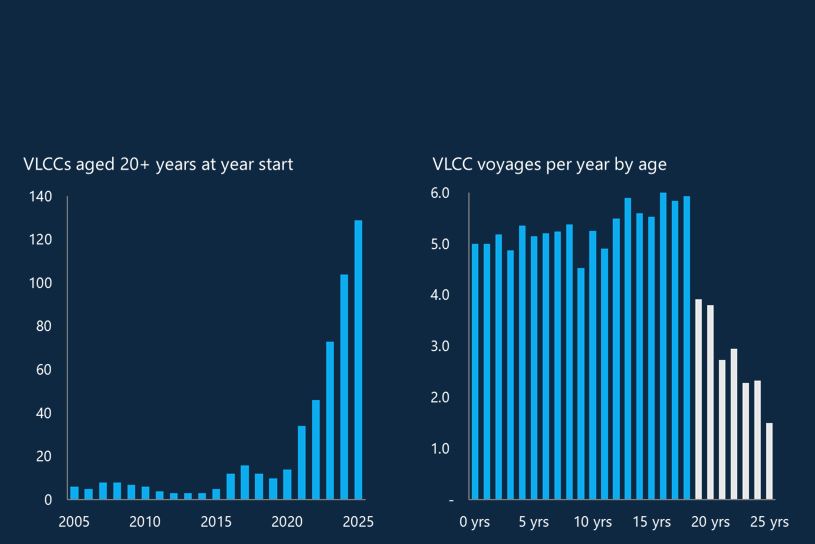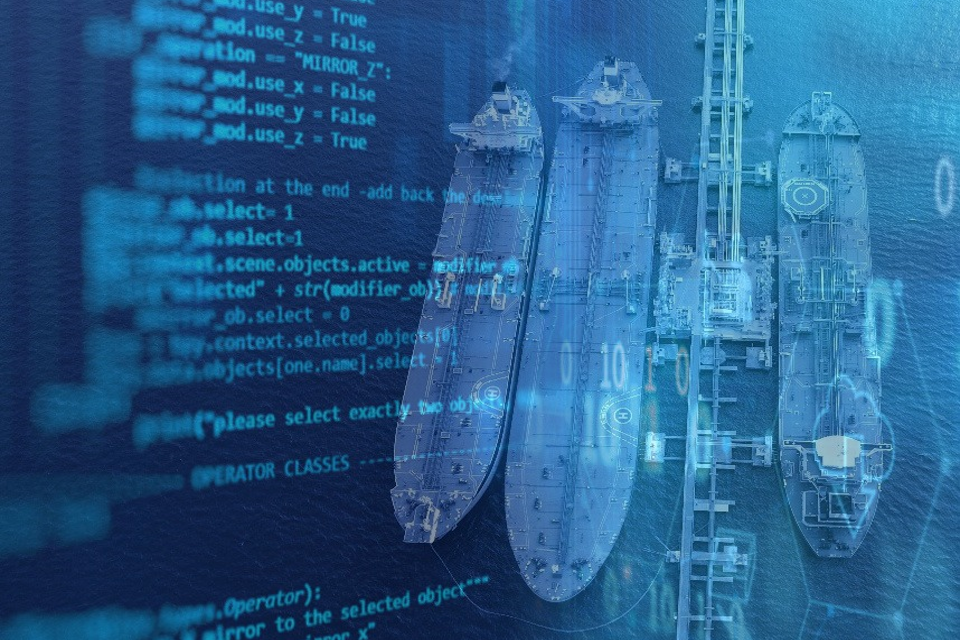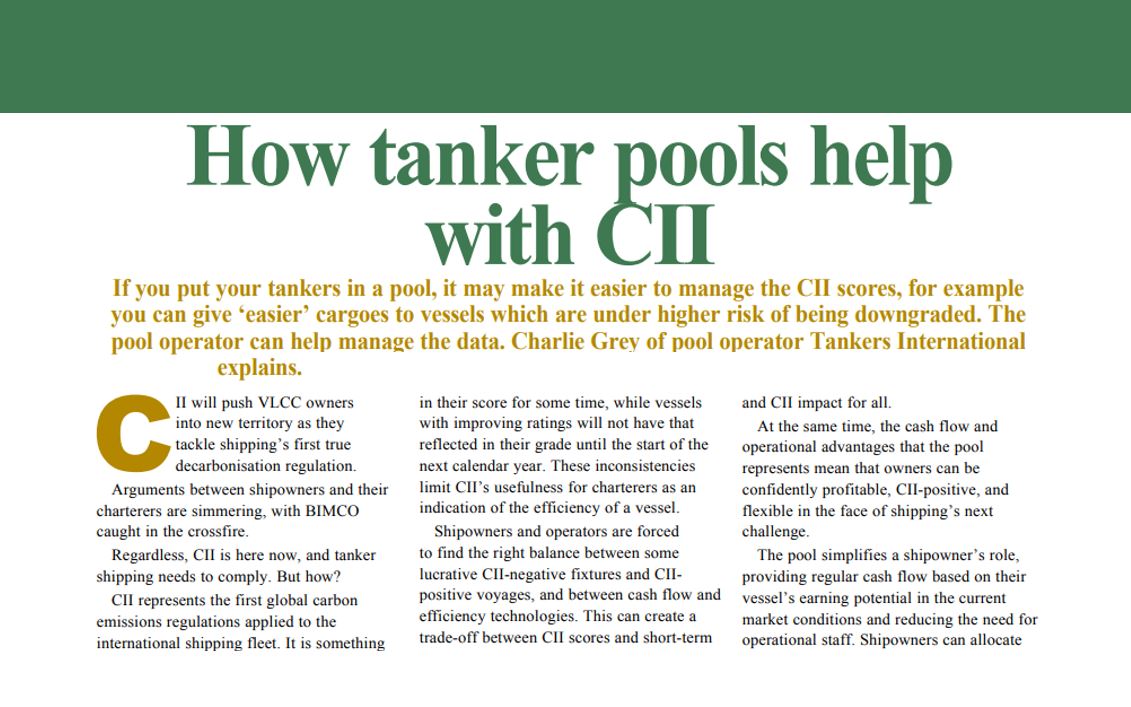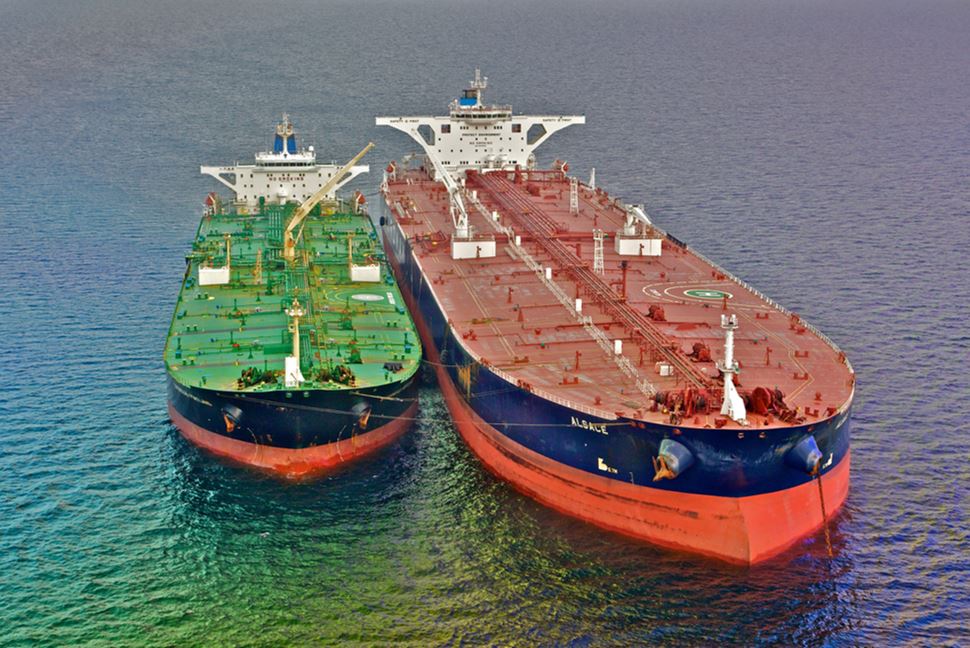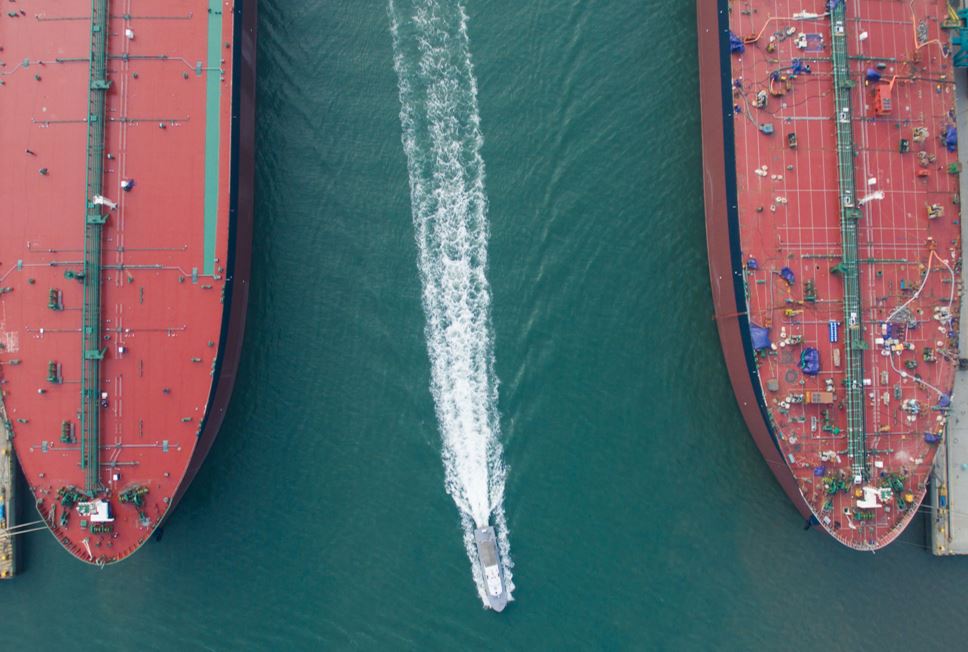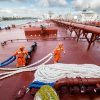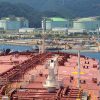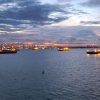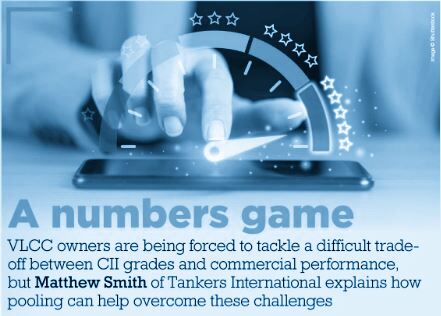
VLCC owners are being forced to tackle a difficult trade-off between CII grades and commercial performance, but Matthew Smith of Tankers International explains how pooling can help overcome these challenges.
The recently introduced current Carbon Intensity Indicator (CII) regulations have several well-documented flaws. Industry experts have noted that the temptation to game the rules by increasing mileage on ballast legs to comply with CII regulations could be too much. In fact, many real-world scenarios exist in which abiding by the CII gradings will do more damage than good with increasing emissions to order to comply with the regulation.
CII scores remain somewhat shrouded in mystery, calculated using a complex system of measuring bunker fuel consumed as a function of distance travelled and hours underway, with this figure multiplied by a vessel-type specific factor. Some suggest that to secure the best CII rating, vessel owners could slow steam non-stop in ballast condition, which risks gaming the CII rating while emitting more emissions.
Although installing low-carbon technologies like air lubrication, engine efficiency technologies, voyage optimisation, and rotor sails will make a passing grade easier to attain, certain anomalies in the regulation mean that a highly efficient vessel will not necessarily have a good rating. For example, if that vessel sits at anchor for several days, it will require bunker fuel to power its generators, emitting CO2 yet travelling no distance. This inconsistency can result in a lower CII grade than an older, less efficient, but highly utilised ship.
Let us not forget the potential struggle as shipowners and charter counterparties play tit for tat. BIMCO’s CII operations clause is attempting to strike the right balance but it is certainly alienating segments of the industry. A group of 23 companies have formally written to BIMCO to voice their concerns. The signatories, which include Mediterranean Shipping Company and A.P. Moller – Maersk, are critical of the clause because it obliges charterers to be fully responsible for the CII performance of the ships they charter. In contrast to actually tackling emissions, shipowners must meet an agreed gCO₂/dwt per nautical mile, as charterers are reluctant to sign away precious freedoms.
The dilemma for shipowners
Regardless of industry concerns, the CII regulations as currently written came into force on the 1st of January, so shipowners must accept this. So, in the race to decarbonise, shipowners now face a tough trade off between CII grades and commercial rewards.
Shipowners must understand exactly how to operate their fleet to achieve a good CII rating; ensuring charterparty agreements incorporate these requirements. They will need to find the right balance between financially lucrative but CII-negative fixtures and CII-positive voyages that may not achieve the same profits. At the same time, they may face a choice between cash flow and installing efficiency technologies. This challenge can create a trade-off between CII scores and short-term profitability.
Owners and operators with large cargo bases and long-term relationships with large-scale charterers have a distinct advantage. This relationship allows them to plan voyages ahead with more confidence – and ensure that they have a mix of different voyage types that meet appropriate standards.
The trade-offs will be more extreme for shipowners who do not have the commercial scale needed to negotiate favourable terms and maximise vessel utilisation. Limited cash flow effectively bars small or cash-poor shipowners outside of a pool from longer routes, which are often the most profitable, as the shipowner must pay for bunkers before they receive freight payment from a charterer. These routes are inherently CII-positive, as they maximise constant-speed travel and minimise time at anchor.
Charterer demand represents an enticing reward for decarbonisation. Yet, they cannot justify owners’ decisions without properly understanding their vessels and operational profile. Most tanker owners do not have sufficient flexible operational resources to complete these complex assessments and may have to build out new teams at an additional cost. Added to that, inconsistent earnings in the spot market can make it difficult for owners to plan technical retrofits profitably, as drydocks can coincide with particular cash flow droughts. Clearly, tanker owners and operators are facing a headache in meeting CII targets at a time when all focus should be on ensuring the safe delivery of their cargo.
Strength in numbers
So how can tanker owners and operators navigate CII disruption while maximising profits? Pooling offers shipowners significant advantages, protecting shipowners against the challenges and setting them up for a seamless approach to any revised or future regulations.
The pooling model provides strength in scale. A pool’s strong commercial position enables greater flexibility in charter negotiations, and the collective pool of ships can maximise earnings. At the same time, the challenge of CII-negative voyages is minimised for any individual vessel as the volume of ships in the pool allows pool members to benefit from greater economies of scale, financial robustness and flexibility through greater utilisation across the combined fleet – helping them to mitigate any impact on CII grades.
Pools can take financially profitable CII-negative fixtures while maintaining grades across the fleet by spreading those voyages across the pool based on CII scores to date. By doing so, the pain of CII-negative voyages for any individual vessel does not mean a poorer pay day as the collective pool of ships can maximise earnings.
However, not all pools are created equal and the Tankers International pool goes one step further. It simplifies a shipowner’s role, providing regular cash flow based on their vessel’s earning potential in the current market conditions. By outsourcing commercial operations to the pool, shipowners can allocate this resource elsewhere, including evaluating and implementing low or no-carbon technology across their fleet.
The Tankers International pool also benefits from high-level technical information sharing provided by in-house forums that discuss insight on important innovations and new technologies – and the challenges that they have represented.
Decisions underpinned by data
Shipowners need to consider their vessel’s potential voyage impact on CII grades alongside, regional pricing, and supply and demand side market trends in actionable analysis. This challenge adds a layer of complexity, because while the CII regulations took effect this year, shipoweners will have to wait until January 2024 to understand their score. At the same time, those scores will be out of date for 364 days every year and will only reflect an average up until the end of the last reporting period. This lack of data means that vessels with falling grades will not see that reflected in their score for some time, while vessels with improving grades will not have that reflected in their grade until the start of the next calendar year.
These inconsistencies limit CII’s usefulness, so indicative voyage CII scores are included in the Tankers International VLCC Fixture app, showing an estimated letter grade and comprehensive calculation for every VLCC voyage fixed in the spot market. The new CII reporting mechanism draws on extensive knowledge of the global VLCC fleet to benchmark any vessel’s bunker consumption against the closest similar vessel out of the 250 vessels that have traded in the Tankers International pool since 2000. This is set against a benchmark speed, which adapts based on our own data on averages across the sector and market conditions.
Strength going forward
There are legitimate questions about whether CII rules are fit for purpose. As global shipping has the potential to be involved in contradicted legal affairs, there are challenges ahead with the dramatic regulatory change stemming from CII, demanding a difference in how the sector needs to work together. The status quo is not viable, and tanker owners and operators need to explore new solutions to ensure that they meet CII targets, and pools are a clear example of how tanker owners can strike a balance between compliance and profitability.
Published in Bunkerspot in April 2023: https://t.co/pQPnVD0PJj
Discover how Tanker Pools can help shipowners manage their CII expose here.


